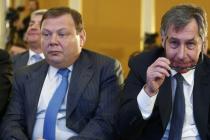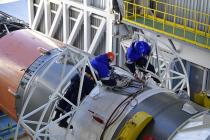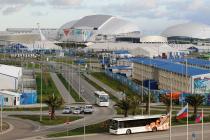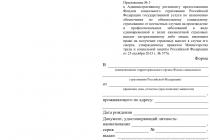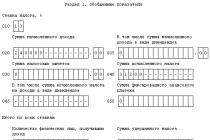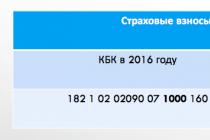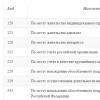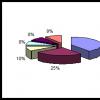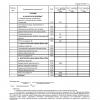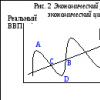Satisfy all the needs of people? Can economic activity be measured? How does the economy develop - spontaneously or according to its own laws?
The economy is the most complex sphere of society. Its many and varied manifestations make it difficult precise definition the concept of economics. Let's try to consider the most general ideas about this area. public life reflecting the views of theoretical scientists and practitioners.
You got acquainted with the concept of "economics" in elementary school. Recall that it is necessary to distinguish between its dual meaning. This word is used to characterize both economic activity and the science of the laws of such activity. Compare two different definitions used to characterize the same word "economy".
Economy - this is an economic system that ensures the satisfaction of the needs of people and society through the creation and use of the necessary vital goods.
Economy
- the science of the economy, the methods of its conduct and management, the relationship between people in the process of production and exchange of goods, the patterns of flow business processes. In order to better understand and assimilate the meaning of each of the definitions, we will consider them in more detail, starting with the second.
WHAT ECONOMIC SCIENCE STUDIES
About economic problems people began to think long before our era. The word "economics" is of Greek origin and was first used by the ancient Greek author Xenophon (c. 430-355 or 354 BC) as the title of his treatise. And only a little over three hundred years ago scientists appeared who began to generalize and systematize knowledge about economic reality. It was the time of becoming market economy.
Why did economics emerge then?
This is due to the fact that for most of the history of mankind, the main issues of the economy (what, how and for whom to produce) were most often decided either in accordance with traditions and customs, or by order of the head of state. Therefore, the actions of people were predetermined and predictable, and there was no need for economic science. In a market economy, decisions on the main economic issues began to accept a free, independent producer. Scientists were interested in how this "free and self-regulating" economic system, according to what laws economic processes proceed in it. Economics as an occupation of professional scientists arose along with the market economy.
Economists sought to study both the general interconnections of large elements of the market economy (for example, employment, foreign trade, economic policy of the state), and individual problems (for example, supply and demand, market competition).
What was the subject of scientists' attention? First of all, such universal problems of economics as limited resources and economic choice (with these basic concepts economics you met in the social science course of the elementary school).
The needs of society in connection with the increase in the population, the acceleration of scientific and technological progress, the deepening of cultural ties and exchanges are constantly increasing and becoming almost limitless. On the contrary, economic opportunities are those real resources that society can direct to satisfy needs, always, in everyone. this moment are limited. Society is constantly faced with the need to resolve this contradiction and the problem of economic choice. How can existing needs be better met with the available resources? This is the problem that economics, the science of choice, is trying to solve.
Economic science studies various areas and laws of economic development at different levels. Thus, the part of economics that studies the economy as a whole is macroeconomics . Its subject matter is, for example, the problems of unemployment, poverty, economic growth, the role of the state in regulating the economy and protecting the interests of society.
Microeconomics is the branch of economics that studies economic relations between individual business entities (consumers, employees, firms), their activities and impact on national economy. She studies the choice problems faced by individual participants economic activity. For example, the interaction of consumers and producers in the market of goods and services, entrepreneurs and employees in the labor market, etc. At the same time, microeconomics studies the functioning of individual markets and industries. It explains how prices for individual goods are set, what funds and why are directed to the construction of new enterprises, the development of industries, how the activities of industries and markets are affected by state policy.
Both levels economic analysis(macro- and microeconomics) use of scarce resources are interconnected. For example, if the reasons for the rise in prices for the products of an oil refinery are analyzed, then this is a microeconomic problem. Analysis of the decision on the antimonopoly policy of the state in relation to the enterprises of the oil industry is the subject of macroeconomics. At the same time, the behavior of individual participants in economic activity (manufacturers, firms) largely depends on the state of affairs in the economy of the entire country.
Modern stage economic development characterized by a high interdependence of national economies on a global scale. That's why economic theory necessarily involves consideration of the problems of the relationship of national economies with the world economy. The laws of development of the world economy are studied by an independent part of economic science - the world (international) economy. The subject of her research can be international trade in goods and services, the movement of capital, the exchange in the field of science and technology, international currency relations and etc.
Economics also studies the functioning and interaction of such economic institutions like state, enterprise, family and household.
The stable, significant relationships identified by scientists between economic phenomena, processes, relationships allow in practice to more effectively solve economic problems.
In the subsequent paragraphs of this chapter, you will get acquainted with the main scientific ideas and works (not only the educational text, but also the reference to the documents at the end of each paragraph will help you with this) of such outstanding thinkers who contributed to economics, such as A. Smith, D Ricardo, K. Marx, D. Keynes, A. Marshall, as well as modern scientists, including representatives of the Russian school economic thought.
ECONOMY AND ECONOMIC ACTIVITIES
In a broad sense, the economy is a set of methods for creating conditions for the survival and progress of mankind. From this we can conclude that economic activity is all kinds of economic activity people to meet their needs and provide material living conditions.
Economic activity is necessary in order to turn resources into useful economic benefits - goods and services that satisfy one or another human need and are available to society in limited quantities. Schematically, the process of transforming natural objects into commodities can be represented as follows:
Between various types economic activity there is a close relationship. Thus, production and distribution cannot be separated, because the goods produced can give a useful result when they reach the consumer. Consumption is not only the goal of production, but also a stimulus for its development. It has a serious impact on the growth of production volumes, the development of certain industries.
Another component of economic activity that links production to distribution and consumption is exchange.
Exchange - an economic transaction in which one person transfers a thing or a commodity to another, receiving money or another thing in return.
A variety of relationships that develop in the process of production and distribution of material goods are included in the concept of " economic sphere society." (Remember what other spheres of society are distinguished, how they are connected with the economy.)
Solution Success main problem economics - determining the most efficient ways to use limited resources - largely depends on the rules, principles "of organizing activities. Thus, for several centuries the world of the economy has been governed by one of the basic principles - the principle of rationality, which allows choosing decisions based on the desire to obtain the greatest economic results with the minimum possible cost of all the resources necessary for this.(Compare the forms of farming familiar to you from history: subsistence and commodity. Which of them takes into account the principle of rationality more fully? Which is more efficient?)
The results of economic activity depend not only on general principles its organization, but also from the so-called economic mechanisms, i.e., the ways and forms of people combining their efforts in solving life support problems. Such important mechanisms of the economy are, for example, the division of labor and specialization, trade. (Think about how these familiar ways of human cooperation affect the content and results of economic activity.)
People satisfy the needs for goods and services either by producing them themselves or by exchanging the products produced for the necessary goods and services. Therefore, in order to improve the standard of living of the population, it is necessary to find ways to increase the volume of production. There are two ways: to expand the scope of use economic resources or increase their efficiency. An indicator or measure of how efficiently available resources are used is productivity (not to be confused with labor productivity). When more quality goods are produced with the same resources, productivity increases.
Productivity is the volume of goods and services produced per unit of input. Costs can be any resources involved in the production process - land, fuel, equipment costs, etc. Productivity is directly affected by quality labor resources(professional training, qualification of workers), technologies used and efficiency management decisions.
MEASUREMENTS OF ECONOMIC ACTIVITY
Various methods are used to measure economic activity. economic quantities and indicators characterizing the state, properties, quality of the economy, its objects, processes. These values allow you to find out how the processes of production, distribution, consumption are going, what are their results.
Economic quantities and indicators can be divided into volumetric (characterize the quantity of the product) and qualitative (characterize the ratio of two quantities). You see, for example, data that Russia sells 130 million tons of coal on the world market - this is an example of a volume indicator. If economists note that this year the decline in production is 90% compared to last year (for this it is necessary to compare two values), this is an example of a qualitative indicator.
Let's meet some economic indicators used to assess the level of production and development of the country's economy.
In most countries, the annual output of the national economy is measured through the indicator gross national product (GNP) . This indicator has been used since 1988 in Russia as well.
GNP is defined as the sum market prices all final products (goods and services) created by the producers of a given country during the year, both domestically and abroad.
Why we are talking only about final products? In order for the volume of the national product to be determined correctly, it is necessary to take into account all products only once. Most goods and services go through many stages of the production process before reaching the final consumer. For example, before a book gets into the hands of readers, it must go through several technological stages - from the development of content by the author, papermaking and printing to sale.
GNP includes sales of final products only (in our case, books), excluding sales intermediate products, i.e., used in the manufacture of the final product (in our case, paper, printing work, publishing costs). This avoids double counting and overestimation of GNP.
GNP is considered a measure of the economy as a whole, because it actually includes the value of all goods and services produced during the year. Based on GNP, several more indicators are calculated: gross domestic product, net national product, national income.
Let us dwell on an indicator similar to GNP and just as often used - gross domestic product (GDP). This indicator of the volume of national production is defined as the sum of the market prices of all final products produced during the year in the country.
Dividing country's GDP by the number of citizens, we get an indicator called GDP per capita. This indicator can be used to compare the degree of economic development and the standard of living. different countries. It is GDP per capita that is one of the main indicators of the standard of living of a nation. When production grows faster, then there are more goods and services per inhabitant of the country, and the standard of living rises. If the population grows faster than production, the average standard of living decreases.
It is necessary to clarify on the basis of what indicators one can judge the growth of gross domestic product. Economists distinguish between two indicators: real GDP, when its volume is expressed in constant prices of manufactured products; nominal GDP when measured in terms of current prices.
When calculating the real GDP, as a rule, an adjustment is made for the level of inflation (rising prices), and it will depend only on changes in real output.
When the prices of goods and services rise, nominal GDP (based on current prices) can rise even if the level of output stays the same or falls.
Assume that nominal GDP has grown during the year from 200 billion rubles. up to 500 billion rubles But over the same period, prices doubled and 1 ruble in this period had purchasing power equal to half of the previous one. It can be said that GDP increased only to 250 billion rubles. (500 billion rubles: 2). For example, in Russia from 1990 to 1999 GDP indicator increased by more than 7 thousand times. Prices during this time have increased by 13,750 times (i.e., almost doubled). Thus, real GDP also decreased by almost 2 times, respectively.
Since on the basis of data on the volume and dynamics of GDP, economic growth in the country is usually judged, it is necessary to use the indicator of real gross domestic product.
Obtained using various meters economic information is the source material for the analysis of the development of the country's economy, the development of economic forecasts. Thus, the observed positive dynamics of GDP growth in Russia in last years(from 2001 to 2003 this figure increased from 5 to 7.2%) allowed the government to put forward the goal of doubling GDP in the next 10 years.
In conclusion, it should be noted that the main actors of economic activity are producers and consumers. You will learn about how they ensure the goals and effectiveness of economic activity by their actions in the following paragraphs.
PRACTICAL CONCLUSIONS
1 Economic knowledge is necessary for every person as a consumer and as an employee. An economically literate person knows how to make buying and hiring decisions, how to protect himself from the consequences of rising prices, how to best use his savings, what profession to choose so as not to be unemployed later.
The lack of economic knowledge and the ability to make rational decisions based on it results in a decrease in the level of well-being, financial losses, dissatisfaction and disappointment in professional activities, and a reduction in the ability to competently defend their economic rights for participants in economic activity.
2 Development market relations in our country demanded from their participants new economic knowledge, without which successful practical activity is impossible, the ability to make the right economic choice in conditions of limited resources. Understanding the general nature of the functioning of the economy helps its participants to correctly determine their economic policy, make reasonable economic decisions even in the most unfavorable periods of the enterprise's activity.
3 The modern economic development of Russia depends to a large extent not only on officials or politicians, but also on the active participation of its citizens in the government of the country. Your choice as a voter can affect the economic policy of the country, and your choice as an employee or consumer will determine not only your well-being, but also how people around you will live.
DOCUMENT
Reflections on the Features of the Russian School of Economic Thought by Academician of the Russian Academy of Sciences L. I. Abalkin (from a report at a scientific conference of the Institute of Economics of the Russian Academy of Sciences and the Free Economic Society of Russia) .
Globalization, which has become the leading trend in world development, by no means removes, but in many respects exacerbates the problems of economic, social and political progress. It removes the opposition of civilizations or formations according to the principle: higher and lower, advanced and backward. Each of them has its own merits and advantages, its own system of values and its own understanding of progress... In this regard, we have to return once again to understanding the special role and place in the science of the Russian school of economic thought... A huge influence on the self-determination of the Russian school of economic thought, both in domestic and world science, was exerted by the originality and uniqueness of the civilization that has developed in our country. No other civilization, if we exclude the still poorly studied specifics of Asian civilization, did not have such different approaches from the West, moral values, perception of the surrounding world and the place of man in it. This could not but affect culture and science, especially the humanities. What is recognized in the West as an indisputable truth, which removes all restrictions as insignificant, is perceived in a completely different and often fundamentally different way in Russian economic thought.
The world of the economy is interpreted not as an eternal struggle of individuals optimizing their well-being, but as a complex, initially multi-colored complex of complementary and thus mutually enriching processes, forms of organization and management methods... The state is not rejected, but organically combined with the market, the general social welfare is higher than the individual success.
Science was called upon to absorb this approach, and where it did so, it succeeded. Where she deviated from this rule, she (and the country) was disappointed. The 20th century, including its last decade, is a clear evidence of this.
QUESTIONS AND TASKS FOR THE DOCUMENT
1. Why does the author consider it necessary to reconsider the role and place in science of the Russian school of economic thought? What determines the originality of this scientific school?
2. What approaches, moral values, and views on the place of man in the world, different from Western ones, characterize, according to L. I. Abalkin, Russian civilization?
3. Can we agree with the author that the use of these approaches by economic science could ensure the success of the country's economic development?
4. Using knowledge recent history and the facts of the socio-economic life of Russia in the last decade, give examples confirming the conclusion of the scientist that the deviation from the approaches and values developed by Russian economists led to failures.
SELF-CHECK QUESTIONS
1 What is the reason for the emergence of economic science?
2. What are the main problems in economics? Name and describe them.
3 What do macroeconomics and microeconomics study?
4 What is needed for natural objects to be transformed into commodities? What is the role of economic activity in this process?
5. How can gross domestic product be measured and defined?
6 In what ways can the volume of production be increased with the limited resources available?
TASKS
one . The GNP of China is higher than the GNP of France. Is it possible on this basis to draw a conclusion about the best state of affairs in its economy? Explain your answer.
2 Fill in the table "Sections of economic science" .
Detailed solution Paragraph § 2 on social science for students in grade 11, authors L.N. Bogolyubov, N.I. Gorodetskaya, L.F. Ivanova 2014
Question 1. Is the economy able to meet all the needs of people? Can economic activity be measured? How does the economy develop - spontaneously or according to its own laws? Does the consumer benefit from producer competition?
The economy cannot satisfy all needs. Economic activity is a set of actions at different levels of management, as a result of which people satisfy their needs through the production and exchange of material goods and services. An activity becomes economic when it aims or results in the production and exchange of goods or services recognized as both useful or rare. Economic activity has a certain sphere of application of forces: agricultural, industrial, handicraft, activities in the field of imports, exports, activities of freelancers, etc.
Economic laws are stable, significant causal, recurring relationships between economic phenomena and processes. In other words, economic laws- this is a manifestation of stable relations between people that develop in the process of production, distribution, exchange and consumption, which at the same time manifest themselves as interests.
Competition is a fight between economic entities for maximum effective use production factors. In economics, they talk about the business competition of economic entities, each of which, by its actions, limits the ability of a competitor to unilaterally influence the conditions for the circulation of goods on the market, that is, the degree of dependence market conditions on the behavior of individual market participants.
Competition benefits the consumer. The more active the competition, the cheaper and better the manufacturer makes his product (service) in order to sell exactly his product (service).
Questions and tasks for the document
Globalization, which has become the leading trend in world development, by no means removes, but in many respects exacerbates the problems of economic, social and political progress. It removes the opposition of civilizations or formations according to the principle: higher and lower, advanced and backward. Each of them has its own merits and advantages, its own system of values and its own understanding of progress.
Question 2. What different from Western approaches, moral values, views on the place of man in the world characterize, according to L. I. Abalkin, Russian civilization?
The world of the economy is interpreted not as an eternal struggle of individuals optimizing their well-being, but as a complex, originally multi-colored complex of complementary and thus mutually enriching processes, forms of organization and management methods. The state is not rejected, but organically combined with the market, the general social welfare is higher than individual success.
Yes, we can agree. Science was called upon to absorb this approach, and where it did so, it succeeded. Where she deviated from this rule, she (and the country) was disappointed. The 20th century, including its last decade, is a clear evidence of this.
Question 4. Using the knowledge of recent history and the facts of the socio-economic life of Russia in the last decade of the 20th century, give examples confirming the scientist’s conclusion that the deviation from the approaches and values developed by Russian economists led to failures.
The economic crisis of 1998 in Russia was one of the most severe economic crises in Russian history.
The crisis occurred against the backdrop of a difficult economic situation in the country, exacerbated by inefficient macroeconomic policy conducted by the authorities in the mid-1990s. In those years, tough monetary policy(containment of inflation by refusing emission financing of the state budget and by maintaining an overvalued ruble exchange rate) was combined with soft budget policy(unreasonably inflated budgets adopted by the State Duma and signed by President Yeltsin). The impetus for the emergence of the crisis was given by two external factors: a sharp decline in world prices for goods of the fuel and energy complex (main article Russian export) and the crisis in Southeast Asia that erupted in mid-1997.
SELF-CHECK QUESTIONS
Question 1. What is the reason for the emergence of economic science?
This is due to the fact that for most of the history of mankind, the main issues of the economy (what, how and for whom to produce) were most often decided either in accordance with traditions and customs, or by order of the head of state. Therefore, the actions of people were predetermined and predictable, and there was no need for economic science. In a market economy, decisions on basic economic issues began to be made by a free, independent producer. Scientists were interested in how this "free" and "self-regulating" economic system works.
Economists sought to study how the general interconnections of large elements of the market economy (for example, employment, international trade, economic policy of the state), as well as individual problems (for example, supply and demand, market competition).
Question 2. What are the main problems of economic science? Name and describe them.
The subject of attention of scientists has become such universal problems as limited resources and economic choice. (Remember what you learned about these concepts from the social studies course in elementary school.)
The needs of society in connection with the increase in the population, the acceleration of scientific and technological progress, the deepening of cultural ties are constantly increasing and becoming almost limitless. On the contrary, economic opportunities - those real resources that society can direct to satisfy needs - are always, at any given moment, limited. Society is constantly faced with the need to resolve this contradiction and the problem of economic choice. How can the existing needs be better met with the available resources? This is the problem that economics is trying to solve.
Economic science studies various areas and laws of economic development at different levels. Thus, the part of economic science that studies the economy as a whole is called macroeconomics. Its subject is, for example, the problems of unemployment, poverty, economic growth, the role of the state in regulating the economy and protecting the interests of society.
Question 3. What study macroeconomics and microeconomics?
Microeconomics is a part of economic science that studies economic relations between individual economic entities (consumers, employees, firms), their activities and impact on the national economy. It studies the choice problems faced by individual participants in economic activity. For example, the interaction of consumers and producers in the market of goods and services, entrepreneurs and employees in the labor market, etc. At the same time, microeconomics studies the functioning of individual markets and industries. It explains how prices for individual goods are set, what funds and why are directed to the construction of new enterprises, the development of industries, how the activities of industries and markets are affected by state policy.
Both levels of economic analysis (macro- and microeconomics) are interconnected. For example, if the reasons for the rise in prices for the products of an oil refinery are analyzed, then this is a microeconomic problem. Analysis of the decision on the antimonopoly policy of the state in relation to the enterprises of the oil industry is the subject of macroeconomics. At the same time, the behavior of individual participants in economic activity (manufacturers, firms) largely depends on the state of affairs in the economy of the entire country.
The current stage of economic development is characterized by a high interdependence of national economies on a global scale. Therefore, economic theory necessarily involves consideration of the problems of the relationship of national economies with the world economy. The laws of development of the world economy are studied by an independent part of economic science - the world (international) economy. The subject of her research is international trade in goods and services, the movement of capital, the exchange and trade in the results of scientific and technical activities, international monetary relations, etc.
Question 4. What is necessary for the objects of nature to be transformed into commodities? What is the role of economic activity in this process?
In a broad sense, the economy is a set of methods for creating conditions for the survival and progress of mankind. From this we can conclude that economic activity is all types of economic activity of people to meet their needs and ensure material living conditions.
Economic activity is necessary in order to turn resources into the necessary economic benefits - goods and services that satisfy one or another human need and are available to society in limited quantities. Schematically, the process of transforming natural objects into commodities can be represented as follows:
Production - Distribution - Exchange - Consumption
To measure economic activity, various economic quantities and indicators are used that characterize the state, properties, quality of the economy, its objects, processes. These quantities allow you to find out how the processes of production, distribution, exchange and consumption are going, what are their results.
Let's get acquainted with some economic indicators used to assess the level of production and development of the country's economy.
Economic quantities are divided into two large classes - absolute and relative.
Question 5: How can gross domestic product be measured and defined?
This indicator of the volume of national production is defined as the value of all final products (goods and services) produced during the year on the territory of the country. By dividing a country's GDP by the number of citizens, we get an indicator called GDP per capita.
GDP is calculated both in constant (constant) prices of the base year and in current (current) prices. That is, economists distinguish between two indicators: real GDP, when its volume is expressed in constant prices of manufactured products; nominal GDP when measured in current prices.
When calculating the real indicator of GDP, as a rule, an adjustment is made for the value of inflation (the level of the price growth rate), and it will depend only on changes in real output. When the prices of goods and services rise, nominal GDP (based on current prices) can rise even if the level of output stays the same or falls.
Let us assume that nominal GDP has grown during the year from 200 to 500 billion rubles. But over the same period, prices doubled, and 1 ruble in this period had a purchasing power equal to half of the previous one. It can be said that GDP increased only to 250 billion rubles. (500 billion rubles: 2). For example, in Russia from 1990 to 1999, the GDP indicator increased by more than 7 thousand times. Prices during this time have risen 13,750 times (i.e. almost twice as much as GDP). Thus, real GDP also decreased by almost 2 times, respectively.
Since on the basis of data on the volume and dynamics of GDP, economic growth in the country is usually judged, it is necessary to use the indicator of real gross domestic product.
Question 6. What are the ways to increase the volume of production with the limited resources available?
The developed forecasts reflect the priority areas of modernization: the growth of investments, the creation of a favorable competitive and business environment, the search for new sources of economic growth, overcoming the technological gap and stimulating high-tech production, the development of the innovative sector of the economy.
There are two ways to increase the result: extensive and intensive. In the first case, growth occurs due to the involvement of more resources in production: labor, time, equipment, material resources, and so on. In the second case, production growth occurs due to a more efficient (rational, economical) use of available resources, or even with a decrease in the amount of resources. In conditions of limited resources, development, of course, should only be intensive.
TASKS
Question 1: China's GNP is higher than France's GNP. Is it possible to conclude on this basis that the state of affairs in its economy is better? Explain your answer.
In most countries, the annual production of the national economy is measured through the gross national product (GNP).
GNP is defined as the value of all final products (goods and services) created by the producers of a given country during the year, both domestically and abroad.
GNP is considered a measure of the economy as a whole, because it actually includes the value of all goods and services produced during the year. Based on GNP, several more indicators are calculated: gross domestic product, net national product, national income.
The size of the GNP is not the main criterion in determining the success or failure of any country. The size of the population plays a big role. In China it is 1.3 billion, in France - 65.4 million. Per capita, France will be in a better position, since its population is ten times smaller. And the standard of living in France is many times higher than in China.
Question 2. Fill in the notebook table "Sections of economic science."
Microeconomics: conditions for concluding an entrepreneurial transaction, competition between producers, interaction between consumers and producers in the goods market, costs and profitability of an enterprise.
Macroeconomics: slowdown in economic growth, employment, level and rate of inflation, causes of growth wages in the oil industry.
World economy: turnover of international foreign exchange market, deepening of the international division of labor, foreign trade policy of countries, causes of the economic crisis.
Enter the listed problems in the appropriate columns of the table: the conditions for concluding a business transaction, the turnover of the international foreign exchange market, competition among producers, the slowdown in economic growth, the interaction of consumers and producers in the goods market, the deepening of the international division of labor, employment, the costs and profitability of an enterprise, the foreign trade policy of countries , the level and rate of inflation, the causes of the economic crisis, the reasons for the growth of wages in the oil industry.
Question 3. In 2004, Russia introduced compulsory insurance cars. This process had both supporters and opponents among car owners. What position would you support? Justify your answer.
Auto insurance is a type of insurance protection that is designed to protect property interests insured, related to the costs of restoring the vehicle after an accident, breakdown or buying a new car after theft or theft, compensation for damage caused to third parties during the operation of the car.
A lot of questions are raised by the interaction of insurance companies with the Russian Union of Motor Insurers, where instructions are developed for companies on the application of specific provisions of the law. By the time the law comes into force, all the necessary papers must be ready, and how they will work is not always clear. They will check on Russian drivers.
The second problem is how insurers will be able to cope with traditional Russian troubles like the rudeness of traffic cops, "setting up" on the roads and the dubious quality of car services. On this score, foreign colleagues will not be able to cope.
- Economic knowledge is necessary for every person as a consumer and as an employee. An economically literate person knows how to make buying and hiring decisions, how to protect himself from the consequences of rising prices, how best to use his savings, what profession to choose so as not to be unemployed later.
- The development of market relations in our country required from their participants new economic knowledge, without which successful practical activity is impossible, the ability to make the right economic choice in conditions of limited resources. Understanding the general nature of the functioning of the economy helps its participants to correctly determine their economic policy, make reasonable economic decisions even in the most unfavorable periods of the enterprise's activity.
- The modern economic development of Russia depends to a large extent not only on officials or politicians, but also on the active participation of its citizens in the government of the country. Your choice as a voter can affect the economic policy of the country, and your choice as an employee or consumer will determine not only your well-being, but also how people around you will live.
The lack of economic knowledge and the ability to make rational decisions based on it results in a decrease in the level of well-being, financial losses, dissatisfaction and disappointment in professional activities, and a reduction in the ability to competently defend their economic rights for participants in economic activity.
Document
Reflections on the Features of the Russian School of Economic Thought by Academician of the Russian Academy of Sciences L. I. Abalkin (from a report at a scientific conference of the Institute of Economics of the Russian Academy of Sciences and the Free Economic Society of Russia).
Globalization, which has become the leading trend in world development, by no means removes, but in many respects exacerbates the problems of economic, social and political progress. It removes the opposition of civilizations or formations according to the principle: higher and lower, advanced and backward. Each of them has its own merits and advantages, its own system of values and its own understanding of progress... In this regard, we have to return once again to understanding the special role and place in the science of the Russian school of economic thought... A huge impact on the self-determination of the Russian school of economic Thoughts, both in domestic and world science, have provided originality and uniqueness of the civilization that has developed in our country. No other civilization, if we exclude the still poorly studied specifics of Asian civilization, did not have such different approaches from the West, moral values, perception of the surrounding world and the place of man in it. This could not but affect culture and science, especially the humanities. What is recognized in the West as an indisputable truth, which removes all restrictions as insignificant, is perceived in a completely different and often fundamentally different way in Russian economic thought.
The world of the economy is interpreted not as an eternal struggle of individuals optimizing their well-being, but as a complex, initially multi-colored complex of complementary and thus mutually enriching processes, forms of organization and management methods... The state is not rejected, but organically combined with the market, the general social welfare is higher than the individual success.
Science was called upon to absorb this approach, and where it did so, it succeeded. Where she deviated from this rule, she (and the country) was disappointed. The 20th century, including its last decade, is a clear evidence of this.
Questions and tasks for the document
- Why does the author consider it necessary to reconsider the role and place in science of the Russian school of economic thought? What determines the originality of this scientific school?
- What different from Western approaches, moral values, views on the place of man in the world, characterize, according to L. I. Abalkin, Russian civilization?
- Is it possible to agree with the author that the use of these approaches by economic science could ensure the success of the country's economic development?
- Using the knowledge of recent history and the facts of the socio-economic life of Russia in the last decade, give examples that confirm the scientist's conclusion that the deviation from the approaches and values developed by Russian economists led to failures.
Questions for self-examination
- What is the origin of economics?
- What are the main problems of economic science? Name and describe them.
- What do macroeconomics and microeconomics study?
- What is necessary for the objects of nature to be transformed into commodities? What is the role of economic activity in this process?
- How can gross domestic product be measured and defined?
- What are the ways to increase the volume of production with the limited resources available?
Tasks
Thoughts of the wise
"Economics is the art of satisfying unlimited needs with limited resources."
L. Peter (1919-1989), American writer
Write the listed problems studied by various parts of economics in the appropriate column:
Conditions for concluding a business transaction; turnover of the international currency market; producer competition; slowdown in economic growth; interaction between consumers and producers in the goods market; costs and profitability of the enterprise; foreign trade policy of countries; level and rate of inflation; causes of the economic crisis; reasons for the growth of wages in the oil industry;
deepening the international division of labor; employment.
2. Choose the most accurate definition of the subject of economic science:
1) the study of people's behavior in the process of production and exchange of material goods;
2) the science of ways to improve the efficiency of the functioning of economic systems;
3) a science that studies the use of society's limited resources for the production of material goods in the face of ever-growing human needs;
4) the science of the daily business activities of people and the extraction of their livelihood.
3.Japan's GNP is higher than Germany's GNP.Is it possible to conclude on this basis that the state of affairs in its economy is better? Justify your answer.
4. A necessary condition for the development of a market economy is:
1) elimination of income inequality of the population
2) increase in state budget expenditures
3) private ownership of the means of production
4) excess of supply over demand
5. What is a barter deal?
A) exchange of goods for goods without payment of money;
B) a system of non-cash payments based on the offset of mutual claims and obligations;
C) Import of goods exempt from customs duties.
6. What does the shortage of money in the country lead to? What happens if there is more money than goods?
7. The income received by the owner from cash savings in a personal account is
1) bank interest
2) profit
3) bonus
4) dividends
8. Which of the following reflect the state budget items?
1) indicators of growth in profits of enterprises
2) income of citizens from entrepreneurial activity
3) the cost of maintaining the army
4) average monthly salary
9. Are the following statements about the central bank correct?
A. The central bank leads commercial banks and manage their activities.
B. The central bank controls the money supply and issues money.
1) only A is true 2) only B is true
3) both judgments are correct 4) both judgments are wrong
10. Find examples in the list that refer to land as a factor of production and write down the numbers under which they are indicated.
1) cash
2) arable land
3) oil deposits
4) machine tools and equipment
5) forest
6) buildings, structures
Answer: ___________________
11. Find examples of cyclical unemployment in the list below and write down the numbers under which they are indicated.
1) with the advent of computers secretaries-typists were unclaimed
2) the economic crisis has led to an increase in unemployment at enterprises in various industries
3) employees of an enterprise that went bankrupt in conditions of intense competition lost their jobs
4) with a decrease in orders at the stage of economic recession construction firm started laying off employees
5) With the completion of fruit harvesting at the horticultural farm, the seasonal workers were paid and went home.
Answer: ___________________
12. Explain the words:
Inflation
Employment
Trade balance
Protectionism
frictional unemployment
GDP
GNP
marketing
Preview:
Classification of markets according to the degree of limited competition
PERFECT COMPETITION, ideal - competition between producers, sellers of goods, which takes place in the so-called ideal market, where an unlimited number of sellers and buyers of a homogeneous product are represented, freely communicating with each other. In reality, such competition is practically not observed, but one has to deal with imperfect competition.
PERFECT COMPETITION
- Monopolistic competition- it's relatively a large number of manufacturers offering similar, but not identical (from the point of view of buyers) products.
- Monopoly - a type of market structure in which there is only one seller who controls the entire branch of production of a certain product that has no close substitute.
- Oligopoly - (from oligo... and Greek poleo - sell, trade), type market structure economy, in which several large firms, companies provide the vast majority of industry production and sales.
MONOPSONY (from Greek móno - one and opsōnia - purchase) - monopoly of the buyer, the situation in the market of goods and services, when there is only one buyer and many sellers. In the broad sense of the word, the term "monopsony" refers to all markets where buyers, consumers of goods and services have a decisive influence on price formation.
Preview:
ADVANCE - an amount of money issued against future payments for material values work performed and services rendered.
EXCISES - indirect taxes included in the price of the goods and paid by the buyer.
SHAREHOLDER - a co-owner of an enterprise or organization created in the form of joint-stock company who owns shares confirming the size of his contribution to authorized capital joint-stock company and giving the right to receive a dividend.
JOINT STOCK COMPANY - an enterprise or organization whose authorized capital is divided into a certain number of shares distributed among shareholders.
A SHARE is a security that certifies the participation of its owner in the formation of the funds of a joint-stock company and gives the right to receive an appropriate share of its dividend profit. Shares are sold and bought, incl. on the stock exchange.
AMORTIZATION - an objective economic process of gradual transfer of the value of labor instruments as they wear out to the goods or services produced with their help, the use of this value in the form of depreciation deductions for simple or expanded reproduction of fixed capital.
AUDIT - a control function of the correctness of the preparation of financial documents.
AUCTION - successive sale of real goods based on the competition of buyers.
BANK - according to the legislation of the Russian Federation, a commercial institution, which is a legal entity, which, in accordance with the law and on the basis of a license issued by central bank The Russian Federation has been granted the right to raise funds from legal and individuals and place them on their own behalf on the terms of repayment, payment and urgency, as well as carry out other Bank operations.
BANKRUT - an insolvent debtor.
BANKRUPTCY - the ruin of an economic entity, individual or legal entity in the event of its recognition in statutory order by an insolvent debtor.
BARTER is a direct moneyless exchange of goods or services.
EXCHANGE - organizational form wholesale, incl. international trade in bulk goods with stable and clear quality parameters (commodity exchange), or systematic transactions for the purchase and sale of securities, gold, currency ( stock Exchange).
BROKER - individual or a firm engaged in mediation in the conclusion of transactions in the stock, commodity and currency exchanges.
EXCHANGE RATE - price monetary unit one country expressed in the currency of another country.
PROmissory note - written promissory note strictly prescribed form which gives its owner (note holder) an indisputable right, after the expiration of the obligation, to demand from the debtor the payment indicated on the bill sum of money.
GUARANTOR - physical or entity guaranteeing jointly (jointly and severally) with the debtor the payment of the bill. The signature of the guarantor is obligatory on the bill.
DEVALUATION - official depreciation national currency towards foreign currencies.
DUMPING - the sale of goods in the markets of other countries at prices below the level normal for these countries.
MONEY SUPPLY - the total money supply that determines the national economy and is in circulation.
MONEY is a special commodity that plays the role of a universal equivalent in the exchange of goods, a product of spontaneous exchange and a form of value for all other goods.
DEPOSIT - funds or securities deposited with financial and credit, customs, judicial or administrative institutions.
COMMODITY DEFICIENCY - discrepancy product offer demand.
DIVERSIFICATION - an increase in the number of industries and the range of goods (services) produced by individual enterprises in new areas for them.
DIVIDEND - part of the profit of a joint-stock company, annually distributed among shareholders in accordance with the number (amount) and type of shares they own.
DEALER - a person (or firm) carrying out exchange or trade intermediation at his own expense.
SUPPLY - appropriations from the budget intended to cover planned losses or balance lower budgets.
INFLATION - the overflow of circulation channels with paper money, accompanied by their depreciation and rising prices.
CREDIT - a loan provided in cash or in kind on a repayment basis and, as a rule, with the payment of an interest determined by agreement between the creditor and the debtor for the use of the loan.
LEASING - long-term rental of machinery and equipment, Vehicle, structures industrial purpose and etc.
LIQUIDITY - the mobility of assets of enterprises, firms, banks, which implies the possibility of uninterrupted payment on time of credit and financial obligations and legitimate monetary claims.
BROKER - an intermediary between the parties when concluding transactions on stock and commodity exchanges.
MARKETING - analysis and forecasting of the market situation in order to guide production and provide better economic conditions for the sale of manufactured products.
MANAGER - manager of a company, bank, financial institution, their structural subdivisions; a professional in his field, endowed with executive power.
MONOPOLY - the exclusive right of production, trade, etc., owned by one person, a certain group of persons or the state; generally the exclusive right to something.
MONOPSONY - a situation in the market in which one buyer is opposed to big number sellers.
STATE TAXES - obligatory payments established and collected by the state from citizens, as well as from legal entities.
PENALTY - the amount that the debtor is obliged to pay to the creditor in case of non-fulfillment or poor-quality fulfillment of the obligation.
VALUE - the officially declared value of a banknote, a security, as a rule, does not correspond to the actual value.
OLIGOPOLY - a market situation in which a small number of fairly large sellers opposes a mass of relatively small buyers, and each seller accounts for a significant part of the total supply on the market.
OLIGOPSONY - a market situation in which a sufficiently limited number of buyers is opposed by a large number of sellers (manufacturers).
SOLVENCY - the ability and ability of an individual or legal entity to pay their debts.
GROSS PROFIT - the entire amount of profit of enterprises before deductions and deductions.
PROLONGATION - extension of the validity of the document.
PROTECTIONISM - the economic policy of the state, which consists in purposeful fencing domestic market from the receipt of foreign-made goods.
RANTIER - the owner of capital, living on interest from its provision on a loan or on income from securities.
REVALUATION - an increase in the official exchange rate of the national currency in relation to foreign currencies.
RE-IMPORT - purchase and import from abroad of domestic goods that have not been processed there.
MARKET - a set of socio-economic relations in the sphere of exchange, through which the sale of marketable products is carried out and the social nature of the labor contained in it is finally recognized.
RENEWAL - a system of measures to improve financial position enterprises in order to prevent their bankruptcy or to increase their competitiveness.
Stagflation is a state of the economy when a stagnation or decline in production (stagnation) is combined with increasing unemployment and a continuous rise in prices - inflation.
BIDDING - a competitive form of procurement in which the buyer announces a competition for sellers for goods with certain technical and economic characteristics.
HOLDING - a type of business, the essence of which is the acquisition of controlling stakes various companies in order to establish control over their activities and receive income in the form of dividends.
SECURITIES - documents containing property rights, giving the right to receive a certain part of income.
ISSUE OF SECURITIES - issuance of securities into circulation, incl. sale of securities to their first owners - citizens or legal entities.
ISSUER - a state or a legal entity that issues securities.
FAIR - a periodically arranged congress of representatives of trade and industrial enterprises, entrepreneurs, merchants, as a rule, for wholesale and purchase of goods according to the samples exhibited at the fair.
ECONOMY: science and economy
TASK 1. Are the following statements about economics correct?
A) economics - the science of the economy and how it is managed
B) the economy is a special economic system, the main goal
which is to meet the needs of people and society
1) only A is correct 3) both options are correct
2) only B is correct 4) both options are wrong
TASK 2. Choose the most accurate definition of the subject of economic science.
A) the study of human behavior in the process of production and exchange
wealth
B) the science of ways to improve the efficiency of functioning
economic systems
C) a science that studies the use of society's limited resources
for the production of material goods in an ever-increasing
people's needs
D) the science of the daily business activities of people and
their livelihood
E) study of methods and criteria for the distribution of produced
economic benefits
TASK 3. Indicate which of the ancient Greek scientists first introduced the concept of "economy".
A) Plato B) Xenophon
B) Socrates D) Aristotle
TASK 4. Fill in the table.
economic science
Components
Subject of study
Macroeconomics
Microeconomics
-- -- -- -- -- -- -- -- -- -- -- -- -- -- --
World economy
-- -- -- -- -- -- -- -- -- -- -- -- -- -- --
TASK 5. Fill in the table.
Write down the problems you are studying
various parts of economics,
corresponding column of the table.
Sections of economic science
Macroeconomics
Microeconomics
World economy
... ... ... ... ... ... ... ... ... ... ...
... ... ... ... ... ... ... ... ... ... ...
... ... ... ... ... ... ... ... ... ... ...
A) conditions for concluding a business transaction
B) turnover of the international currency market
B) producer competition
D) slowdown in economic growth
D) the interaction of consumers and producers in the goods market
E) deepening the international division of labor
G) employment of the population
H) costs and profitability of the enterprise
I) foreign trade policy of countries
K) the level and rate of inflation
K) causes of the economic crisis
M) the reasons for the growth of wages in the oil industry
TASK 6. Indicate which of the listed institutions does not belong to the economic ones.
A) production B) household
B) entrepreneurship D) inheritance
TASK 7. Fill in the diagram.
Ways to increase production volumes
EXTENSIVE WAY INTENSIVE WAY
TASK 8. Decipher the abbreviations meaning economic indicators.
GNP - _________________________________________________________________
GDP - _______________________________________________________________
TASK 9. Fill in the diagram.
GDP indicators
REAL NOMINAL
1. ________________ 1. ________________
2. ________________ 2. ________________
3. ________________ 3. ________________
TASK 10. Solve the problem.
The GNP of China is higher than the GNP of France. Is it possible to conclude on this basis that the state of affairs in its economy is better?
Explain your answer.
TASK 11. Indicate which of the following applies to objective factors affecting
performance.
A) quality of labor resources
B) the effectiveness of management decisions
C) use of new technologies
G) Natural resources involved in the production process
TASK 12. Solve the problem.
Which economic regulation mechanism provides the best opportunity to allocate resources to its sectors in accordance with the volume and structure of consumption: market / free / pricing or directive / centralized / pricing?
Justify your answer.

